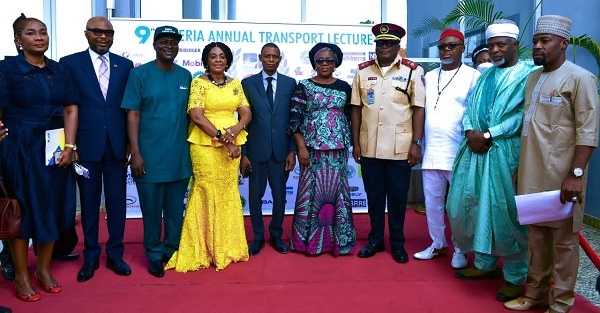
The Federal Ministry of Transport has engaged in the development of a world-class transport system in Nigeria to recognise the importance of industrialisation and diversification of the economy.
The permanent secretary, Federal Ministry of Transportation, Dr. Magdalene Ajani, disclosed this in Abuja at the 9th Nigeria Annual Transport Lecture tagged “Nigeria Transportation for Development, Sectional Achievement, Prospects and Challenges”.
“The Federal Government has vigorously strived to rehabilitate the existing narrow gauge rail lines to standard gauge lines to provide connectivity between cities [in Nigeria] and West Africa.
“Similarly, the development of deep seaports and the automation of our ports operations to facilitate the ease of doing business at the ports are an evident reality of the ministry’s zeal for sectoral development.
“The Transport Ministry concurrently has ongoing public-private engagement in the development of a world-class transport system within the properties of the National Inland Waterways in Lagos State and encourages other states to key into the drive.
“The current administration recognises the importance of the transportation sector to the industrialisation and diversification of the Nigerian economy and is doing everything to ensure infrastructural development to drive the sector, even though the ministry is beleaguered by insufficient funding, minimal private sector participation and duplication of functions that tend to cause inter-agency conflicts,” she disclosed.
Making her presentation, a former director, road transport and mass transit administration, Federal Ministry of Transportation, Anthonia Ekpa, decried the neglect of the road sector by the Federal Government as against huge sums accorded other modal means of transport. She said that prioritising the road sector is cheaper and would have more coverage on roads constructed and buses bought, contrary to the amount spent to build just an airport runway or rail track.
She revealed that the United Nations records in 2018-2019 showed that people died mostly on roads and called all to be advocates for the development of the road sector.
In his speech earlier, the director-general, National Automotive Design and Development Council (NADDC), Jelani Aliyu, stated that the theme of this year’s lecture was aptly chosen because transportation is the backbone for the economic development of any nation and a critical investment sector that stimulates economic growth.
He also stated that the theme is in line with the policies of the NADDC towards promoting and enhancing value addition in the transport and automotive sector of the economy by creating a conducive business climate to further enhance investment inflow and industrialisation.
According to Jelani, the agency is rapidly working towards developing and promoting advanced transport technology in the automotive industry in line with the global paradigm shift to a carbonless transport system. “Currently, one of our top focus areas is scaling up production of applicable electric vehicles locally, to enable Nigeria to meet her targets for the Paris Accord and 2060 net-zero commitment.”

